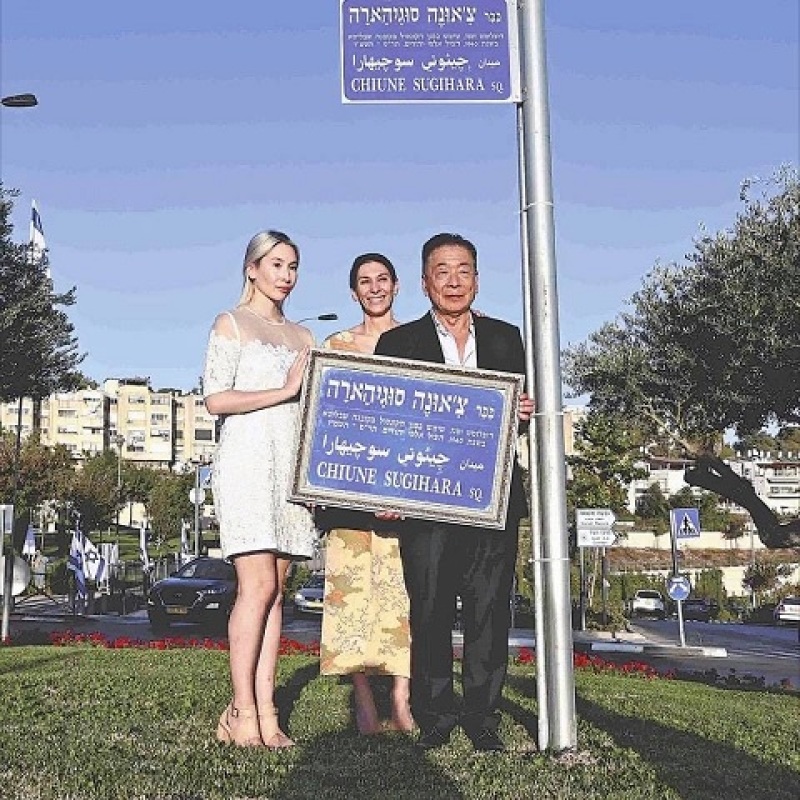
The son of a Japanese diplomat who saved thousands of Jews during the Holocaust was denied entry to Israel simply due to lacking COVID-19 documents.
Nobuki Sugihara applied for a visa in September to attend a ceremony for naming a square in Jerusalem after his father, Chiune Sugihara, who helped escape a number of Jews in Lithuania by issuing Japanese transit visas. But the Israeli embassy in Brussels rejected his application because of the issue about health insurance and failure to provide a quarantine address, The Times of Israel reported.
Nobuki argued that the documents should be handled by the host of the ceremony itself.
With the situation, the younger Sugihara thought that the city never really wanted him to enter the country.
"You know my father issued a transit visa to Japan for anyone who requested, no matter if they have insurance, no matter if they have a place to stay in Japan," he said.
Nobuki's four other companions, including family members and friends, were also denied of their visas.
The embassy's action was criticized by Altea Steinherz, granddaughter of Itche Topola, one of the Jews saved by the late diplomat.
"The denial of entry visas to the Sugihara family by the Jewish State is darkly ironic and deeply embarrassing. As a descendant of Sugihara's last 'visa for life' survivor, one of hundreds of thousands that owe their lives to this man, I am aghast. This needs to be corrected, and immediately," Steinherz pointed out.
On Oct. 8, however, the embassy reversed the decision following the intervention of several Israeli officials. Nobuki's companions were also granted visas.
The Chiune Sugihara Square was dedicated on Monday in Jerusalem, attended by Mayor Moshe Lion, Japanese ambassador to Israel, some of the Jews saved by Chiune and their descendants. The Sugihara family and their friends were also in attendance.
Nobuki addressed the event, saying that his father never thought that many of whom he granted visas at the time were able to survive. He also shared that his father chose to help the Jews out of compassion for people who gathered outside the Japanese consulate who "had nowhere else to go... no house to stay..."
"He didn't like to hear 'saved.' He just did what he could do," he added.
Chiune and his wife, Yukiko, were honored with the "Righteous Among the Nations" awards for helping many Jews in Lithuania by issuing visas in 1940 to escape the Nazis.
Fluent in Russian, Chiune studied in Harbin University to learn the language. In 1924, he was appointed to the city's Japanese Consulate as a Russian expert and later worked in the Manchurian foreign office. He returned to Japan in 1935 and in 1937, he was assigned in Finland. By 1939, he was sent to Lithuania as a consul where a number of Jews fled for refuge from Hitler's worsening persecution in Europe. Trying to escape to Curacao through Japan, they went to Chiune to plead for transit visas.
The diplomat did ask permission from the Foreign Ministry in Japan to issue visas but the ministry responded, forbidding him to issue visas for those who cannot follow proper procedures. Following his conscience, Chiune decided to ignore the order and issued visas to the Jews despite falling short of the conditions, including having enough money and a visa to the final destination.
He continued issuing visas until the very day he left Lithuania, handing out the last visa moments before his train left the station. The diplomat was able to issue a total of 2,139 "Visas for Life."
However, when he returned to his home country in 1947, he was fired by the Foreign Ministry for issuing visas against the order. Afterwards, he was forced to work different jobs just to make a living.
This heroic action earned Chiune the nickname, "Japanese Schindler."























